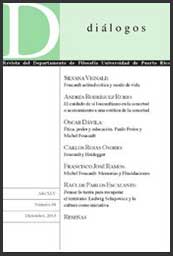Abstract
According to Epiphanius of Salamis (between 310/320–403 C.E.), Arcesilaus said that the truth is accessible to God alone, but not to man (Panarion, 933), and Carneades was of the same opinion as Arcesilaus (Panarion, 9.34).2 Of course, this doxography looks heavily influenced by christian orthodoxy. Quintus Septimus Florens Tertullianus (c. 160–c. 225 C.E.) has clearly stated in his Ad Nationes (197 C.E.) that: «In like manner, Arcesilaus makes a threefold form of the divinity -the Olympian, the Astral, the Titanian- sprung from CÅ"lus and Terra; from which through Saturn and Ops came Neptune, Jupiter, and Orcus, and their entire progeny»3 (Aeque Arcesilaus trinam formam diuinitatis inducit, Olympios, Astra, Titanios, de Caelo et Terra; ex his, Saturno et Ope, Neptunum, Iouem et Orcum, et ceteram successionem [Q. S.Fl. Tertulliani Ad Nat., 2.2.15]).4 Perhaps, Epiphanius would have interpreted this testimony as a foreshadow of Catholic Church dogma of Trinity.5 It seems that Eusebius of Caesarea‘ exegetical hermeneutics in his Praeparatio Evangelica (written in the early part of the fourth century C.E.) has been actively working in many Fathers of the Church in order to revindicate the universalism of Christian Religion, drawing parallels with Greek Philosopher‘s doctrinesDownloads
Download data is not yet available.

